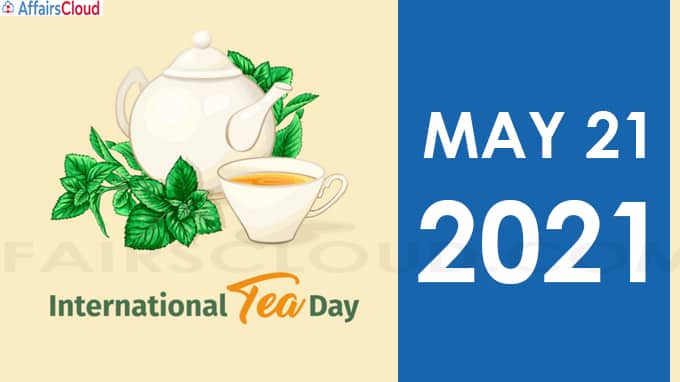 The United Nations(UN)’s International Tea Day is annually observed across the globe on 21st May to celebrate the cultural heritage, health benefits and economic importance of tea.
The United Nations(UN)’s International Tea Day is annually observed across the globe on 21st May to celebrate the cultural heritage, health benefits and economic importance of tea.
The observance of the international tea day is led by the Food and Agriculture Organisation (FAO)of the UN.
Note:
Previously, the International Tea day was observed by the tea grouping countries like India Sri Lanka, Bangladesh, Nepal, Vietnam, Kenya, Malawi, Malaysia, Uganda and Tanzania on 15th December since 2005.
Aim:
- To promote and support the actions to implement the sustainable production and consumption of tea and create awareness about the importance of combating hunger and poverty.
- To highlight the role of tea in rural development, poverty reduction and food security in developing countries.
Background:
i.The United Nations General Assembly(UNGA) adopted the resolution A/RES/74/241 on 19th December 2019 and proclaimed the 21st May of every year as the International Tea Day.
ii.The first International Tea Day was observed on 21st May 2020.
iii.The day was proposed by the Government of India during the session of the Intergovernmental Group on Tea.
Why May 21?
May 21 marks the beginning of the tea production season across several tea producing countries.
Tea and SDG:
The production and processing of tea contributes towards various sustainable development goals like
Goal 1: End poverty in all its forms everywhere
Goal 2: Zero Hunger
Goal 5: Achieve gender equality and empower all women and girls
Goal 15: Life on land
Tea and climate Change:
The production of tea is very sensitive to climate change. The change in temperature and rainfall pattern, with floods and droughts affects the production of tea.
Globally Important Agricultural Heritage Systems:
The FAO has designated 4 tea cultivation tea sites in China, Japan and Korea as Globally Important Agricultural Heritage Systems.
- China- The Pu’er Tea Agroecosystem & Jasmine and Tea Culture System of Fuzhou City
- Japan- Traditional Tea-grass Integrated System in Shizuoka
- Korea- Traditional Hadong Tea Agrosystem, Hwagae-myeon




